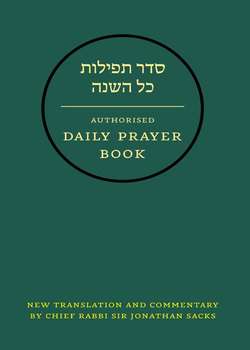Читать книгу Hebrew Daily Prayer Book - Jonathan Sacks - Страница 29
Attributes of GOD
ОглавлениеMany of the key terms descriptive of GOD are not precisely translatable because they presuppose the concept of covenant: an open-ended pledge between two or more parties to join their destinies together in a reciprocal bond of loyalty and love. The nearest human equivalents are: 1. the bond of marriage; 2. peace treaties between nations. The unique idea of the Torah is that such a covenant can exist between GOD and humanity.
Thus , often translated as “true” actually means “faithful, one who acts in accord with his word, one who honours commitments and promises”. , translated as “lovingkindness” refers to the emotions and actions that flow from a covenantal bond, such as between husband and wife, or between parents and children. It means love translated into deed.
There is no English word for which means both “justice” and “charity”. often translated as “righteousness”, means “distributive justice, equity” as opposed to , which means “legal or retributive justice”. , which I have translated as “compassion”, derives from the word rechem, meaning “a womb.” It signifies the unconditional love of a mother for her child. “grace”, means gratuitous kindness, which flows from the generosity of the giver, not the merits of the recipient.
Holy. In general, this means “separated, set apart, standing outside”. Used of GOD, it means “He who stands outside nature” because He made nature. Used of the people of Israel (as in “a holy nation”, Exodus 19:6) it means the people who stand outside the normal laws of nations – defined by land, language, race or political structure – because they are the sole nation whose constitutive raison d'être is to serve GOD as His witnesses to the world. Shabbat is holy time because it stands outside the normal concerns of the week. The Temple is holy space because it is dedicated to the service of GOD.
To stand in the presence of holiness, as in prayer, is to enter GOD’S domain; that is, the place where His will rules, not ours. That is why prayer is like sacrifice, because both involve a psychological-spiritual act of renunciation. We renounce our will, accepting His. The Hebrew word for sacrifice, korban, means “coming, or bringing, close”. Often, in non-Hebraic languages, the word “holy” implies distance and awe. In Judaism, the reverse is also true: Israel encounters holiness as a special closeness to GOD. This is experienced as both love and awe: love, because of our closeness to the Infinite; awe because of the exacting responsibilities this carries with it.
